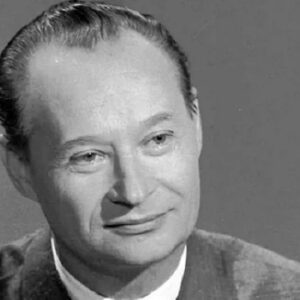Alexander Dubcek was a politician from Slovakia most known for his crucial contribution to the Prague Spring, a time of political liberalization in Czechoslovakia under the Soviet Union’s rule after World War II. He was a reformer who sought to increase citizens’ rights to participation in governance by bringing democracy to the nation and decentralizing the economy. He also wanted to promote free speech and relax constraints on the media. Since he was young, he had a political interest and participated in underground activities during World War II. He joined the Communist Party of Slovakia because he adhered to communist principles (KSS). After the war, his political career in communist Czechoslovakia continued to advance steadily, and he eventually rose to the position of secretary of the Slovak Communist Party. The population of Czechoslovakia was becoming more disgruntled with Anton Novotn’s administration during the 1960s. Novotn served as the president and general secretary of the Communist Party of Czechoslovakia. Soon after, Novotn was compelled to quit, and Dubcek took his position as First Secretary of the party’s Slovak section. Despite being a genuine communist personally, he led the charge for political reform and strove to liberalize the Communist state.
Early Childhood & Life
In Uhrovec, Czechoslovakia, on November 27, 1921, Alexander Dubcek was born. Stefan Dubek, his father, belonged to the Czechoslovak Communist Party. When he was three years old, his family relocated to the Soviet Union before moving back to Czechoslovakia a few years later.
From an early age, he had a political bent and shared his father’s belief in communist ideas. He joined the Nazi occupation’s underground resistance during World War II, and in 1944 he took part in the Slovak National Uprising. While his sibling was slain in the conflict, he sustained injuries.
The career of Alexander Dubcek
During the conflict, Alexander Dubcek enrolled with the Communist Party of Slovakia (KSS). The party changed its name to the Communist Party of Czechoslovakia’s (KS) Slovak section in 1948.
In the years following World War II, he had great career success and steadily advanced through the ranks in Communist Czechoslovakia. In 1951, he was elected to the National Assembly of the Czechoslovak parliament.
In 1955, he joined the Slovak branch’s Central Committee, and in 1962, he was admitted to full membership in the Central Committee’s Presidium. He continued his schooling in the meantime and earned his degree from the Moscow Political College in 1958.
After a struggle for control of the Slovak branch, he succeeded the Stalinist Karol Balicek as First Secretary of the Slovak Communist Party in 1963. With Dubcek as their leader, a new generation of Slovak Communists now controls the party.
Stalinists who disparaged Slovak nationalists in the 1950s were his predecessors. Dubcek started the process of promoting Slovak identity in an effort to repair the harm their actions had done.
Additionally, he supported political reform, and it was under his direction that Slovakia’s political environment improved. Additionally, he loosened media limitations. The audience of the weekly journal “Kultrny Ivot,” which published candid essays by the most progressive writers discussing liberalization, federalization, and democratization, increased during this time.
The 1960s were a challenging decade for Czechoslovakia and its people. People were growing increasingly dissatisfied with the leadership of Antonn Novotn, the President of Czechoslovakia and General Secretary of the Communist Party of Czechoslovakia, as the nation’s economy continued to deteriorate.
On January 5th, 1968, Novotny, a staunch Stalinist, was forced to quit, and Alexander Dubcek took over as the First Secretary of the Communist Party of Czechoslovakia.
The Prague Spring is the time that followed Novotny’s overthrow and Dubcek’s accession to office. Dubcek, along with other reformers of the same mindset, aimed to establish “socialism with a human face.”
He tried to enact a number of reforms that included, among other things, decentralization of some industries, democracy, political liberalization, and promotion of freedom of speech.
The Soviet Union, feeling threatened by the rising free atmosphere in Czechoslovakia, did not welcome these reforms, though. Through a series of agreements, the Soviet leadership attempted to halt the changes taking place in Czechoslovakia.
Invading the nation in August 1968 with the help of its Warsaw Pact allies, the Soviet Union imprisoned him and other reformers. Even though the Soviet soldiers were effective in eventually putting an end to the reforms, he was sent back within a few days. In April 1969, he was made to quit his position as First Secretary.
After his political career came to an end, he began working for the Slovakian Forestry Service.
Bigger Works of Alexander Dubcek
During the Prague Spring, Alexander Dubcek made an effort to alter the communist system. He attempted to politically liberalize the nation while serving as the First Secretary of the Communist Party of Czechoslovakia (KS), as well as to advance decentralization and democratization.
Recognition & Achievements
He received the Sakharov Prize for Freedom of Thought in 1989 in recognition of his efforts during the Prague Spring to reform the communist system.
Personal Legacy & Life
Paul, Peter, and Milan were the three sons that Alexander Dubcek and Anna had as children. In 1990, he lost his wife.
In September 1992, he was driving when an accident occurred on a motorway close to Humpolec. After the collision, he suffered terrible injuries and passed away on November 7, 1992, two months later. He was laid to rest in Slovakia’s Slaviie Dolie cemetery in Bratislava.
Alexander Dubcek’s Net Worth
Alexander is one of the wealthiest and most well-liked politicians. Alexander Dubcek’s net worth is $5 Million, per our analysis of data from sources including Wikipedia, Forbes, and Business Insider.


